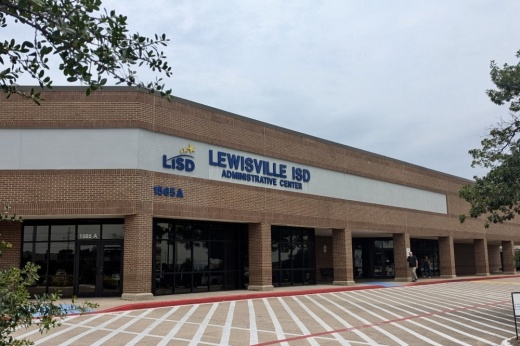LISD is the largest contributor of the 17 school districts that fund DCAD’s budget, along with 44 cities and 68 special districts, according to DCAD documents. Out of all three revenue streams, school districts comprise almost 61% of the appraisal district's $23.8 million budget, which was approved on June 13.
LISD alone will pay $4.7 million into DCAD in FY 2024-25—nearly 20% of the appraisal district's budget—marking a $525,000 increase from previous years, according to DCAD documents. Trustees said the increase equates to the loss of eight teaching positions, according to a July 11 district news release.
“To give a 1% raise, our organization needs $4 million," LISD trustees stated in a July 10 letter sent to the DCAD board members. "Instead of providing a raise, we will be paying over $4 million to DCAD while our employees see their paychecks decrease due to rising insurance costs."
The context
Appraisal districts determine property values across the state. The state legislature created the entities in 1979 through Senate Bill 621 to streamline the process. DCAD appraises all of the parcels of property in Denton County. The appraisal district collects a portion of the property tax from each school district, city and special district within its jurisdiction to form its operating budget, according to DCAD documents.
Denton County’s exponential growth has created challenges for DCAD in providing service to the citizens and entities, Chief Appraiser Don Spencer said in a letter contained in the June presentation. To address this, the appraisal district needs to hire 10 employees, which would raise its headcount from 115 to 125.
“With the population and parcel count continuing to rise, the need for personnel here at the district is critical for our organization to comply with the statutory requirements set forth by the property tax code,” Spencer said.
The $23.8 million DCAD budget is a $3 million increase from FY 2023-24 and outlines education and training, utility and maintenance and capital outlay expenses, according to DCAD documents.
Zooming in
LISD has seen an increase of $1.6 million in DCAD payments since FY 2018-19, the last time the state's basic per student allotment funding to school districts was changed, Superintendent Lori Rapp said.
“As the county grows and [DCAD] has more properties to appraise or more protests coming in, that can affect all of their needs, but hey don't deal with the limitation like we do of our budget being determined by a formula that's created legislatively,” Rapp said.
Moreover, LISD's general fund balance has decreased $37 million since FY 2021-22 and currently sits at $132 million, according to LISD documents.
State law requires school districts to maintain a general fund balance equal to 25% of its expenses, which would be $128 million for LISD. This means the district cannot dip into those funds to pay for future staff increases. It has also exhausted its funding avenues, including passing a VATRE as part of its 2023 bond, Rapp said.
“Essentially paying the DCAD budget is an underfunded mandate,” Rapp said. “Appraisal district budgets being composed of payments from school districts and cities is something that we really would like to understand better. Because again, if [schools] aren’t getting any adjustment funding formula, but the appraisal district is increasing their budget, that's an unfunded mandate.”
Also of note
On June 10, the LISD officials said they expect a $8.4 million shortfall for FY 2024-25 in anticipation of DCAD’s budget increase.
At the meeting, the board also approved a 1% of a midpoint raise and/or a $500 one-time payment for staff during the 2024-25 school year that is contingent upon financial audit results in the fall 2024, according to district documents.
Until then, no raises will be given despite a rise in health insurance costs, Rapp said.
To navigate the funding crisis the district is facing, district leaders have been tasked with budget and staffing reductions, along with convening a committee to look at the retirement of school buildings, according to the LISD letter.
Going forward
Without intervention from state officials to increase the basic allotment, LISD might be unable to absorb future DCAD budget increases, Rapp said.
Trustees indicated that they would consider disapproving future budgets if necessary adjustments are not made, according to a July 11 press release.
The district's letter concluded with a call to action for the DCAD Board and other local leaders to join LISD in advocating for an increase in public education funding, stressing that the future of the DCAD budget and its ability to meet growing demands is directly tied to the funding of local school districts.
“I don't think teachers and kids should have to have money taken away from them in order to fund appraisal districts across the state of Texas,” Rapp said.





